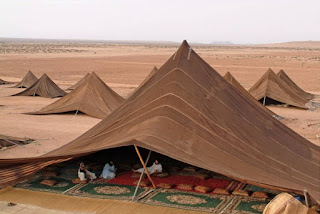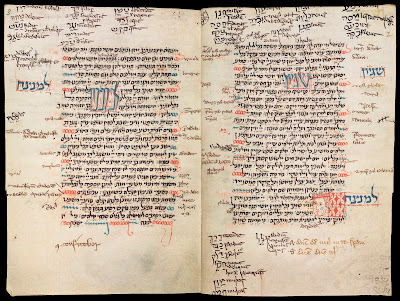Psalm 27 - My heart shall not fear
Jump to end of psalm
Of David.
1) The Lord is my light and my salvation;
whom shall I fear?
The Lord is the stronghold of my life;
of whom shall I be afraid?
2) When evildoers assail me
to devour my flesh—
my adversaries and foes—
they shall stumble and fall.
3) Though an army encamp against me,
my heart shall not fear;
though war rise up against me,
yet I will be confident.
4) One thing I asked of the Lord,
that will I seek after:
to live in the house of the Lord
all the days of my life,
to behold the beauty of the Lord,
and to inquire in his temple.
5) For he will hide me in his shelter
in the day of trouble;
he will conceal me under the cover of his tent;
he will set me high on a rock.
6) Now my head is lifted up
above my enemies all around me,
and I will offer in his tent
sacrifices with shouts of joy;
I will sing and make melody to the Lord.
7) Hear, O Lord, when I cry aloud,
be gracious to me and answer me!
8) “Come,” my heart says, “seek his face!”
Your face, Lord, do I seek.
9) Do not hide your face from me.
Do not turn your servant away in anger,
you who have been my help.
Do not cast me off, do not forsake me,
O God of my salvation!
10) If my father and mother forsake me,
the Lord will take me up.
11) Teach me your way, O Lord,
and lead me on a level path
because of my enemies.
12) Do not give me up to the will of my adversaries,
for false witnesses have risen against me,
and they are breathing out violence.
13) I believe that I shall see the goodness of the Lord
in the land of the living.
14) Wait for the Lord;
be strong, and let your heart take courage;
wait for the Lord!
Psalm 27 (NRSV*)
3rd Sunday after Epiphany, Year A, verses 1, 4-9
2nd Sunday of Lent, Year C
My print Bible labels this "A Triumphant Song of Confidence." True. If the Lord stands with us, then whom can I fear?
The Church's season of Lent is preparation for the dramatic story of Holy Week and the Paschal Mystery, Christ's resurrection from the dead at Easter. It is traditionally a time of penitence, fasting, an occasion to turn again towards the Lord and renew one's faith.
Repentance gets a bad rap. Most people do not like admitting wrongdoing and failure to be as good as we should. A classic prayer of repentance speaks of "the things I have done and the things I have left undone." Everyone can pray this with sincerity.
The psalm does not exactly name the enemies we face. "The day of trouble" can speak poetically to challenges both social and in our individual psyches. Yet we should not doubt that it refers also to accusers, armies, and enemies "breathing out violence," whether personal or on a larger scale.
At times like these, we long for a safe place, for a protector and defender. It is also easier to stand up ourselves if we know (or can imagine) such an ally.
Getting back to the process of repentance, the first step is admitting we've got a problem. One of the major barriers is our fear. Will we face judgment and punishment? Will our weaknesses be exploited? Or, more directly to our self-image, will our pride suffer deflation? Note that this dynamic is not unique to any one religion or faith, but is part of any relationship where there is the need for repentance (turning around) and reconciliation.
A lot depends on our context. To whom are we addressing our need? We need not put on a brave face to the one who is on our side. "'Come,' my heart says, 'seek his face!' Your face, Lord, do I seek." Traditional advice to the penitent is to make confession trusting in the Lord's goodness.
No, it is the others we are worried about. The ones who would tear us down, who will be pleased by our trouble, even our destruction. As a practical matter, it does not matter if we fear retribution for God, from others, or if we fear those voices inside us which can be a harsh judge.
We know how hard it is to face our fears and go on. Perhaps there is no way forward other than to simply do it. Heroes are not immune to fear. However something greater calls them forth. Could that be the God who has loved you always, who conceived your very life, who wants nothing more than you to be whole?
It is confidence indeed, or courage in the face of fear, to say "I believe that I shall see the goodness of the Lord," and not in some distant heaven, but here, "in the land of the living."
Credits:
Photographer unknown. Khayma, Berber tent (Morocco).
* New Revised Standard Version Bible (NRSV), copyright © 1989 the Division of Christian Education of the National Council of the Churches of Christ in the United States of America. Used by permission. All rights reserved.
Of David.
1) The Lord is my light and my salvation;
whom shall I fear?
The Lord is the stronghold of my life;
of whom shall I be afraid?
2) When evildoers assail me
to devour my flesh—
my adversaries and foes—
they shall stumble and fall.
3) Though an army encamp against me,
my heart shall not fear;
though war rise up against me,
yet I will be confident.
4) One thing I asked of the Lord,
that will I seek after:
to live in the house of the Lord
all the days of my life,
to behold the beauty of the Lord,
and to inquire in his temple.
5) For he will hide me in his shelter
in the day of trouble;
he will conceal me under the cover of his tent;
he will set me high on a rock.
6) Now my head is lifted up
above my enemies all around me,
and I will offer in his tent
sacrifices with shouts of joy;
I will sing and make melody to the Lord.
7) Hear, O Lord, when I cry aloud,
be gracious to me and answer me!
8) “Come,” my heart says, “seek his face!”
Your face, Lord, do I seek.
9) Do not hide your face from me.
Do not turn your servant away in anger,
you who have been my help.
Do not cast me off, do not forsake me,
O God of my salvation!
10) If my father and mother forsake me,
the Lord will take me up.
11) Teach me your way, O Lord,
and lead me on a level path
because of my enemies.
12) Do not give me up to the will of my adversaries,
for false witnesses have risen against me,
and they are breathing out violence.
13) I believe that I shall see the goodness of the Lord
in the land of the living.
14) Wait for the Lord;
be strong, and let your heart take courage;
wait for the Lord!
Psalm 27 (NRSV*)
3rd Sunday after Epiphany, Year A, verses 1, 4-9
2nd Sunday of Lent, Year C
My print Bible labels this "A Triumphant Song of Confidence." True. If the Lord stands with us, then whom can I fear?
The Church's season of Lent is preparation for the dramatic story of Holy Week and the Paschal Mystery, Christ's resurrection from the dead at Easter. It is traditionally a time of penitence, fasting, an occasion to turn again towards the Lord and renew one's faith.
Repentance gets a bad rap. Most people do not like admitting wrongdoing and failure to be as good as we should. A classic prayer of repentance speaks of "the things I have done and the things I have left undone." Everyone can pray this with sincerity.
The psalm does not exactly name the enemies we face. "The day of trouble" can speak poetically to challenges both social and in our individual psyches. Yet we should not doubt that it refers also to accusers, armies, and enemies "breathing out violence," whether personal or on a larger scale.
At times like these, we long for a safe place, for a protector and defender. It is also easier to stand up ourselves if we know (or can imagine) such an ally.
Getting back to the process of repentance, the first step is admitting we've got a problem. One of the major barriers is our fear. Will we face judgment and punishment? Will our weaknesses be exploited? Or, more directly to our self-image, will our pride suffer deflation? Note that this dynamic is not unique to any one religion or faith, but is part of any relationship where there is the need for repentance (turning around) and reconciliation.
A lot depends on our context. To whom are we addressing our need? We need not put on a brave face to the one who is on our side. "'Come,' my heart says, 'seek his face!' Your face, Lord, do I seek." Traditional advice to the penitent is to make confession trusting in the Lord's goodness.
No, it is the others we are worried about. The ones who would tear us down, who will be pleased by our trouble, even our destruction. As a practical matter, it does not matter if we fear retribution for God, from others, or if we fear those voices inside us which can be a harsh judge.
We know how hard it is to face our fears and go on. Perhaps there is no way forward other than to simply do it. Heroes are not immune to fear. However something greater calls them forth. Could that be the God who has loved you always, who conceived your very life, who wants nothing more than you to be whole?
It is confidence indeed, or courage in the face of fear, to say "I believe that I shall see the goodness of the Lord," and not in some distant heaven, but here, "in the land of the living."
Credits:
Photographer unknown. Khayma, Berber tent (Morocco).
* New Revised Standard Version Bible (NRSV), copyright © 1989 the Division of Christian Education of the National Council of the Churches of Christ in the United States of America. Used by permission. All rights reserved.




Comments
Post a Comment